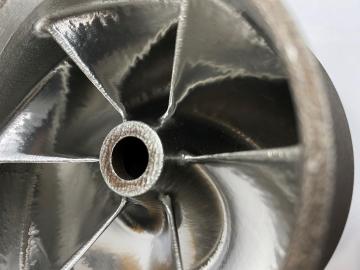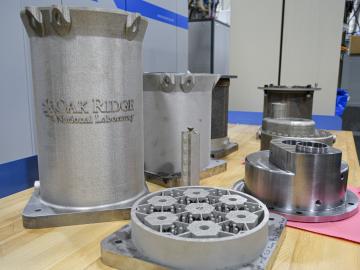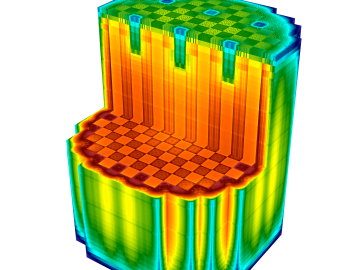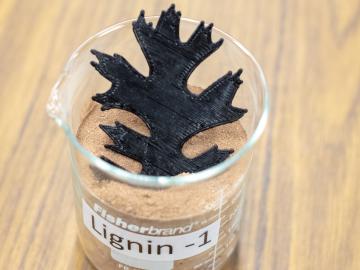Filter News
Area of Research
News Topics
- (-) 3-D Printing/Advanced Manufacturing (15)
- Advanced Reactors (12)
- Artificial Intelligence (9)
- Big Data (9)
- Bioenergy (46)
- Biology (73)
- Biomedical (18)
- Biotechnology (13)
- Buildings (2)
- Chemical Sciences (11)
- Clean Water (11)
- Climate Change (40)
- Composites (5)
- Computer Science (21)
- Coronavirus (14)
- Critical Materials (1)
- Cybersecurity (2)
- Decarbonization (20)
- Energy Storage (7)
- Environment (90)
- Exascale Computing (4)
- Frontier (3)
- Fusion (9)
- Grid (3)
- High-Performance Computing (20)
- Hydropower (8)
- Isotopes (7)
- Machine Learning (8)
- Materials (12)
- Materials Science (9)
- Mathematics (3)
- Mercury (7)
- Microscopy (10)
- Molten Salt (5)
- Nanotechnology (7)
- National Security (3)
- Net Zero (2)
- Neutron Science (9)
- Nuclear Energy (37)
- Partnerships (5)
- Physics (4)
- Polymers (2)
- Renewable Energy (1)
- Security (2)
- Simulation (14)
- Space Exploration (5)
- Summit (10)
- Sustainable Energy (31)
- Transformational Challenge Reactor (4)
- Transportation (3)
Media Contacts

Scientists at the Department of Energy Manufacturing Demonstration Facility at ORNL have their eyes on the prize: the Transformational Challenge Reactor, or TCR, a microreactor built using 3D printing and other new approaches that will be up and running by 2023.

Researchers at the Department of Energy’s Oak Ridge National Laboratory are refining their design of a 3D-printed nuclear reactor core, scaling up the additive manufacturing process necessary to build it, and developing methods

In the race to identify solutions to the COVID-19 pandemic, researchers at the Department of Energy’s Oak Ridge National Laboratory are joining the fight by applying expertise in computational science, advanced manufacturing, data science and neutron science.

OAK RIDGE, Tenn., Feb. 19, 2020 — The U.S. Department of Energy’s Oak Ridge National Laboratory and the Tennessee Valley Authority have signed a memorandum of understanding to evaluate a new generation of flexible, cost-effective advanced nuclear reactors.

Scientists at the Department of Energy’s Oak Ridge National Laboratory have created a recipe for a renewable 3D printing feedstock that could spur a profitable new use for an intractable biorefinery byproduct: lignin.




